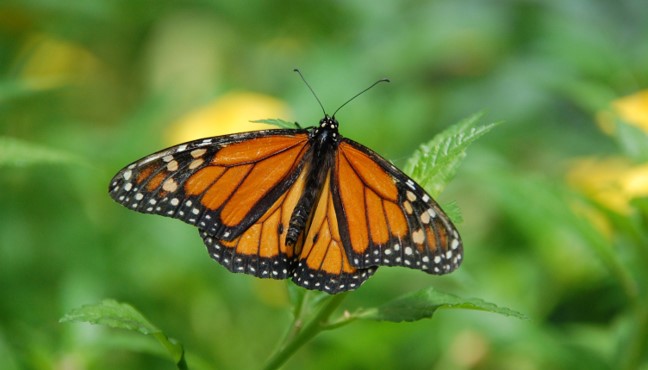April showers have come and gone. The May flowers have bloomed and are beginning to wilt. Now, it’s time to continue your green thumb into the summer months by planting more flowers and homegrown vegetables you can enjoy right from your backyard. The taste of the first homegrown tomato is just within sight and daydreaming of your favorite recipes to incorporate them into fill your head. But, wait! You head to the garden to reap the rewards of your hard work and you immediately see half-eaten tomatoes! Some are still even green right on the vine! In this article, we will go over 4 ways to keep all those pesky critters out of your garden, without resorting to harsh pesticides and chemicals.
1. Bring in the Spiders!
While spiders can be downright awful to find in your home, having them take residence in your garden is a near ideal scenario. Why is that you may ask? Because spiders eat all the pests that are bent on destroying all the hard work you’ve put into your garden. Look at spiders as the 24/7 guardians of your pants, seeking out and hunting down the very creatures that make running a successful garden so challenging.
So how do you go about actually attracting them your garden? Many critter-eating spiders prefer dark, shadowy hiding places near the ground, making a small pile of mulch or a low, dense plant such as St. John’s Wort. If your main problem is with flying insects, planting taller plants such as blackberries and bell peppers will allow spiders to form large webs that are able to catch these critters before they wreak havoc on your garden. Just as nature intended, spiders serve as a remarkably effective natural garden bug repellent.
2. Supplement Your Garden with Plants that Attract Predators & Prey Alike
As an addition to item 1 above, there are several other natural predators of the worst offenders when it comes to destroying your garden. Bugs such as aphids, mites, leaf hoppers, and other insects that can avoid spiders may still prove troublesome. In these cases, what you can do is add different plants to your garden that can help to both eat these pests and distract them by providing them a decoy food source, thus saving the rest of your garden.
Plants such as sunflowers, marigolds, goldenrod, and cosmos can draw in lady bugs, which are harmless to your garden but act as machines when it comes to eliminating the small, numerous plant eating bugs that left unchecked can act as a plague to your garden. Furthermore, plants such as dill, parsley, and cilantro can act as more attractive options for invasive bug species, with added benefit of acting as a breeding ground for beautiful butterflies that use these plants as nesting areas for their larva. Especially for house plans that include a central atrium for the garden or other layouts that keep the garden close to the home, the site of butterflies in the garden is always such a delight.
3. Create Your Own, Non-Toxic Bug Spray
Using simple ingredients from around your home, you can put together a diy garden bug spray that helps to keep invasive bugs out without causing any harm to your plants or introducing any consumption risk to your garden. Garlic-based recipes tend to be very effective at repelling bug infestations entirely and can be added to a homemade fertilizer for plants, whereas a vegetable-oil based solution can serve as a very powerful insecticide that coats the insects’ bodies in the oil and suffocates them to death without the pungent smell that garlic is known for. I have included recipes for both solutions below:
Garlic-based Bug Spray:
- 2 Whole Bulbs of Garlic
- 1 Quart of Water
- 1/2 Cup of Vegetable Oil
- 1 Tsp of Liquid Soap
Puree the Garlic and water in a blender and leave it to sit overnight. Strain this mixture into a container, add the rest of the ingredients, and dilute it 1 cup of mix to one quart of water to use. Easy and Simple!
Oil-based Bug Spray:
- 1 Cup of Vegetable Oil
- 1 Tbsp of Liquid Soap
Simply mix the ingredients together and dilute the mix by adding 1 quart of water to every two teaspoons of mixture to use. Homemade bug spray for plants in less than 5 minutes!
4. Use Natural-Grade Diatomaceous Earth as a Natural Soil Additive
Diatomaceous Earth is available in most gardening sections as serves as a cheap and effective soil additive that creates a dry, abrasive texture that pesky bugs can’t stand. Simply add a bit of Diatomaceous Earth to your top soil after every watering, and watch your critter problem simply disappear!
Do you know any other tricks to keeping your garden bug free? If you have a secret way to keep all those pests at bay throughout the summer, please share. Even the most seasoned gardener often meets their match when it comes to critters and insects. Share your garden successes right here!

